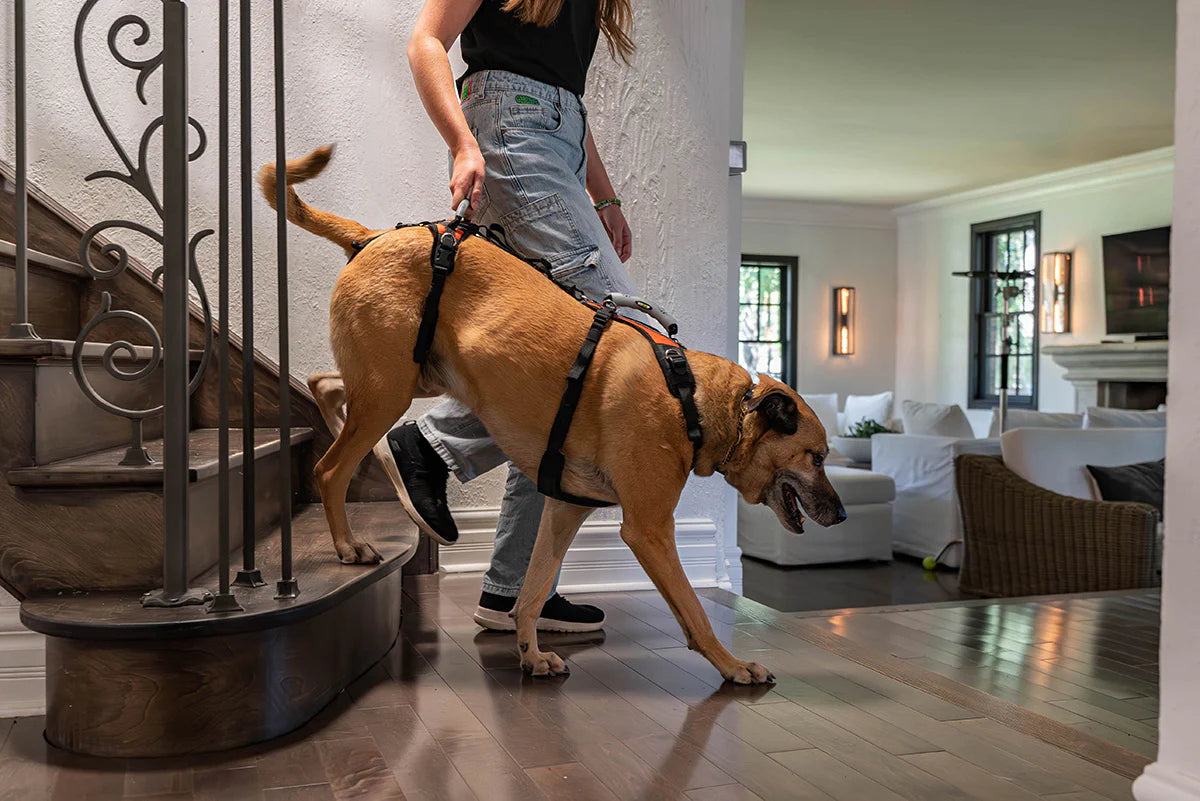How Long Do Bernese Mountain Dogs Live? Lifespan and Care Tips

Bernese Mountain Dogs are known for their gentle nature, intelligence, and strong work ethic. They make wonderful companions and are especially loved by families. However, anyone who has spent time with a Bernese Mountain Dog knows one of the hardest truths about the breed: they tend to have a short lifespan.
If you’re considering adding a Bernese to your family, or you already have one by your side, it’s important to understand what to expect in terms of lifespan and how to support your dog through every stage of life.
This guide explains how long Bernese Mountain Dogs usually live, why their lifespan is shorter than many other breeds, and what you can do to help them live a longer and more comfortable life.
What is the average lifespan of a Bernese Mountain Dog?
The average lifespan of a Bernese Mountain Dog is between 6 and 8 years. Some individuals can live to be 9 or 10, and a small number have reached ages of 11 or more, but this is less common.
Compared to other dog breeds, this is relatively short. For example, many large dog breeds live 10 to 12 years, and small breeds often live beyond 13 years. The short lifespan of the Bernese is often linked to genetic factors and a higher risk of certain health conditions.
Why do Bernese Mountain Dogs have a short lifespan?
Several key reasons contribute to the shorter-than-average lifespan of Bernese Mountain Dogs. These include:
1. High cancer rates
Cancer is the leading cause of death in Bernese Mountain Dogs. Studies suggest that about 50% of Bernese Mountain Dogs will develop cancer, which is a higher rate than most other breeds. The most common types include:
-
Histiocytic sarcoma
-
Mast cell tumors
-
Lymphoma
-
Osteosarcoma (bone cancer)
These cancers can appear early and progress quickly, often limiting treatment options and reducing life expectancy.
2. Genetic predisposition
Bernese Mountain Dogs have been selectively bred for generations, which has reduced genetic diversity in the breed. This makes them more likely to inherit diseases, including various cancers and orthopedic conditions.
3. Joint and mobility issues
Due to their size and structure, Bernese are prone to joint problems like hip dysplasia and elbow dysplasia. These conditions can impact quality of life, especially in older dogs, and may lead to secondary issues such as muscle loss or chronic pain if not managed properly.
4. Heart and immune system problems
Some Bernese develop heart disease or immune system conditions that affect their ability to fight infections and other diseases. These underlying health issues may not always be obvious but can shorten a dog's lifespan if left untreated.
Can you help a Bernese Mountain Dog live longer?
Yes, while you can’t control your dog’s genetics, there are many things you can do to improve their quality of life and possibly extend it. These steps focus on early detection, proper care, and managing your dog’s changing needs over time.
Schedule regular vet checkups
Routine vet visits are essential. Blood work, cancer screenings, and physical exams can help catch problems early. Dogs over the age of 5 should see the vet at least twice a year, even if they seem healthy.
Keep your dog at a healthy weight
Extra weight puts added strain on joints and can lead to other health problems, such as diabetes or heart disease. A well-balanced diet and regular activity are key. Talk to your vet about the right food portions for your dog’s age and activity level.
Provide daily exercise
Bernese Mountain Dogs need moderate exercise to stay healthy. This can include:
-
Daily walks
-
Off-leash play in a secure yard
-
Low-impact hikes
-
Mental stimulation through training or puzzles
Avoid hard impact activities like jumping or running on pavement for long distances, especially if your dog has joint issues.
Support aging and disabled Bernese with mobility aids
As your Bernese Mountain Dog gets older or develops joint problems, you may notice signs like:
-
Trouble standing up
-
Difficulty climbing stairs
-
Slower movements
-
Reduced interest in walks
In these cases, mobility aids can make a major difference. A custom-built dog wheelchair, such as those available from K9 Carts, can help maintain your dog’s independence and physical comfort.
K9 Carts wheelchairs are designed specifically for the shape and needs of individual dogs, which is important for a large breed like the Bernese. Supporting your dog’s mobility not only improves their quality of life but also helps delay muscle loss and associated health problems.
Maintain proper grooming and hygiene
Bernese Mountain Dogs have thick, long coats that need regular brushing to prevent matting and reduce skin infections. Dental care is also important to avoid oral infections, which can affect the heart and kidneys.
Use joint supplements if needed
Supplements like glucosamine, chondroitin, and omega-3 fatty acids can support joint health. While not a cure for dysplasia or arthritis, they may help ease discomfort and improve mobility, especially when started early.
Watch for early signs of illness
Because Bernese Mountain Dogs are at higher risk for cancer and other diseases, early detection can be critical. Watch for signs such as:
-
Lumps under the skin
-
Sudden weight loss
-
Loss of appetite
-
Trouble breathing
-
Limping or reluctance to move
-
Fatigue or behavioral changes
Report any changes to your vet promptly.
What health conditions are most common in Bernese Mountain Dogs?
In addition to cancer and joint problems, Bernese Mountain Dogs may be prone to:
-
Progressive retinal atrophy (PRA), which can lead to vision loss
-
Degenerative myelopathy, a condition that affects the spinal cord
-
Bloat (gastric torsion), which is a life-threatening emergency
-
Hypothyroidism
-
Von Willebrand’s disease, a bleeding disorder
Genetic testing and early screening can help you prepare for and manage some of these conditions.
When do Bernese Mountain Dogs start showing signs of aging?
Most Bernese Mountain Dogs begin to show signs of aging between 5 and 7 years of age. Common age-related changes include:
-
Slower movement
-
Joint stiffness
-
Graying around the face
-
Decreased activity levels
-
Increased need for rest
-
Changes in appetite
This is often when owners begin to notice that stairs become harder, long walks are tiring, or the dog struggles to get up after lying down. Supporting these changes with appropriate care, including mobility aids if needed, is important to maintain comfort and well-being.
Can lifestyle changes make a real difference?
Yes, daily habits and environment can significantly affect your Bernese Mountain Dog’s health. Here are a few lifestyle improvements that can help:
-
Provide a soft, supportive bed to reduce joint strain
-
Use ramps instead of stairs where possible
-
Keep your dog mentally active through gentle training or interactive toys
-
Create a low-stress home environment
-
Ensure access to fresh water and maintain consistent routines
These small steps can ease aging-related discomfort and reduce the risk of injury.
Frequently asked questions
How can I help my Bernese Mountain Dog live longer than the average lifespan?
You can help your Bernese Mountain Dog live longer by focusing on proactive health care, proper nutrition, weight management, regular vet checkups, and early detection of diseases.
Exercise in moderation, joint supplements, and maintaining a low-stress environment are also important. Avoid overfeeding and watch for signs of illness like limping, lumps, or fatigue. Starting preventive care as early as possible, including screenings for cancer and joint issues, increases the chance of catching problems early, which may help extend your dog’s lifespan.
What are the first signs of cancer in Bernese Mountain Dogs?
The early signs of cancer in Bernese Mountain Dogs can include unexplained weight loss, lumps or swellings under the skin, changes in appetite, persistent lameness, or difficulty breathing.
Some cancers, like histiocytic sarcoma, progress quickly and may first show up as joint pain or stiffness. Always report sudden or unusual changes in your dog’s health or behavior to your veterinarian, especially if your Bernese is over five years old. Early diagnosis and treatment can sometimes improve outcomes.
What is the best diet for a Bernese Mountain Dog to support a longer life?
A balanced diet rich in high-quality protein, moderate fat, and limited carbohydrates supports long-term health in Bernese Mountain Dogs. Look for food with added joint-supporting ingredients like glucosamine, omega-3 fatty acids, and antioxidants. Avoid foods with fillers, by-products, and artificial additives.
Puppies need a large-breed growth formula to reduce the risk of orthopedic problems. Adult and senior Bernese benefit from tailored nutrition based on activity level and health status. Always consult your vet to choose the best diet for your individual dog.
At what age do Bernese Mountain Dogs typically develop joint problems?
Joint problems in Bernese Mountain Dogs often begin to appear between 4 and 6 years of age, though some dogs show symptoms as early as 2 years. Hip dysplasia, elbow dysplasia, and arthritis are common in the breed due to their large size and genetics.
Signs may include stiffness, difficulty standing, reluctance to climb stairs, or a noticeable limp. Early intervention with joint supplements, weight control, and low-impact exercise can slow progression and improve comfort.
What types of mobility aids work best for aging Bernese Mountain Dogs?
For aging or disabled Bernese Mountain Dogs, the most effective mobility aids include custom-built dog wheelchairs, lifting harnesses, orthopedic beds, and ramps.
A dog wheelchair, such as those offered by K9 Carts, is particularly useful for dogs with weakened back legs or degenerative conditions. It allows them to stay active, which supports muscle strength and quality of life. A properly fitted aid ensures comfort and safety, especially for large breeds that need extra support.
How often should a Bernese Mountain Dog see a vet as they age?
Senior Bernese Mountain Dogs should see a veterinarian at least every 6 months for wellness exams, even if no symptoms are present. These checkups allow early detection of conditions like cancer, arthritis, and organ decline.
Routine tests may include blood work, urine analysis, and imaging if needed. Dogs with known health issues may require more frequent visits. Regular monitoring is especially important for this breed due to its higher risk of serious health problems.
What are the most common health issues in Bernese Mountain Dogs?
The most common health problems in Bernese Mountain Dogs include various cancers (such as histiocytic sarcoma and lymphoma), hip and elbow dysplasia, bloat (gastric torsion), degenerative myelopathy, and progressive retinal atrophy. They are also prone to hypothyroidism and some bleeding disorders.
Many of these conditions are genetic. Responsible breeding, early health screenings, and lifelong preventive care are key in reducing the impact of these issues.
How do I know if my Bernese Mountain Dog is in pain from joint problems?
Signs that your Bernese Mountain Dog may be in pain from joint problems include limping, reluctance to climb stairs, stiffness after rest, difficulty rising, whining during movement, or sudden changes in behavior such as irritability or withdrawal.
Some dogs may also show muscle loss in their back legs or avoid activities they once enjoyed. If you observe these signs, schedule a vet exam promptly to assess the severity and discuss treatment options like anti-inflammatories, supplements, or mobility aids.
Is a dog wheelchair safe for large breeds like Bernese Mountain Dogs?
Yes, a dog wheelchair is safe for large breeds like Bernese Mountain Dogs when properly designed and fitted.
Custom-built wheelchairs, such as those from K9 Carts, are tailored to each dog’s size, weight, and medical condition. This ensures the right balance, stability, and support. These wheelchairs help dogs maintain mobility without placing extra strain on their front or rear limbs. They can improve both quality of life and overall health by allowing safe movement despite joint or neurological problems.
When should I consider using a wheelchair for my Bernese Mountain Dog?
You should consider using a wheelchair for your Bernese Mountain Dog when they begin to struggle with walking, especially if caused by joint issues, neurological conditions, or muscle weakness.
Common signs include dragging the rear legs, loss of coordination, frequent falls, or an inability to support their own weight. If pain medication and physical therapy are no longer effective on their own, a dog wheelchair can provide the support needed for continued mobility and independence. Always consult your vet before starting any mobility device.








